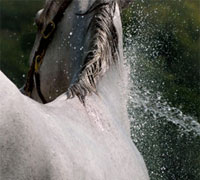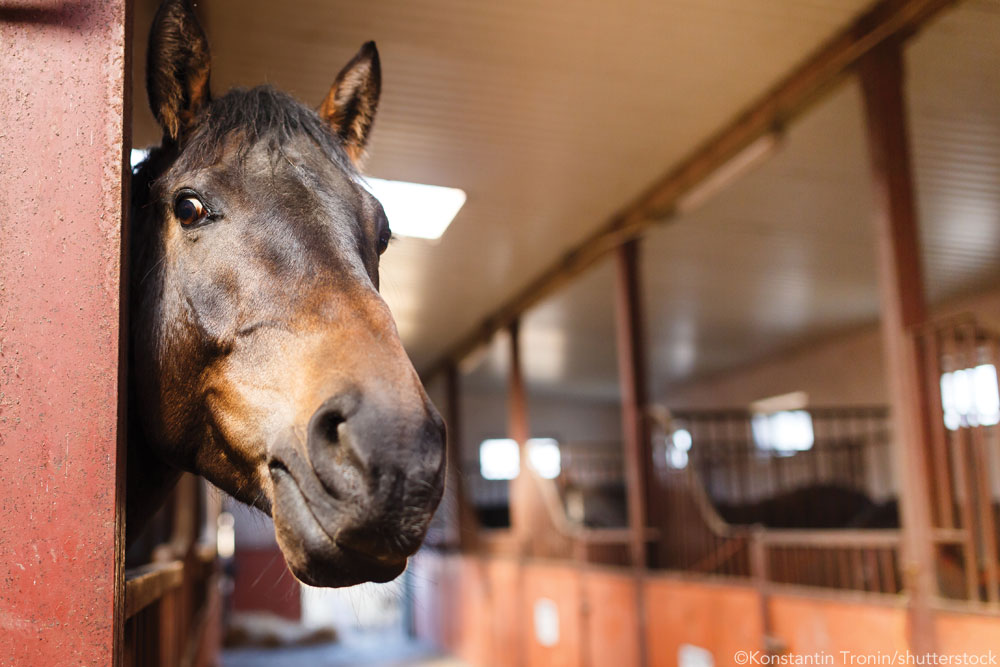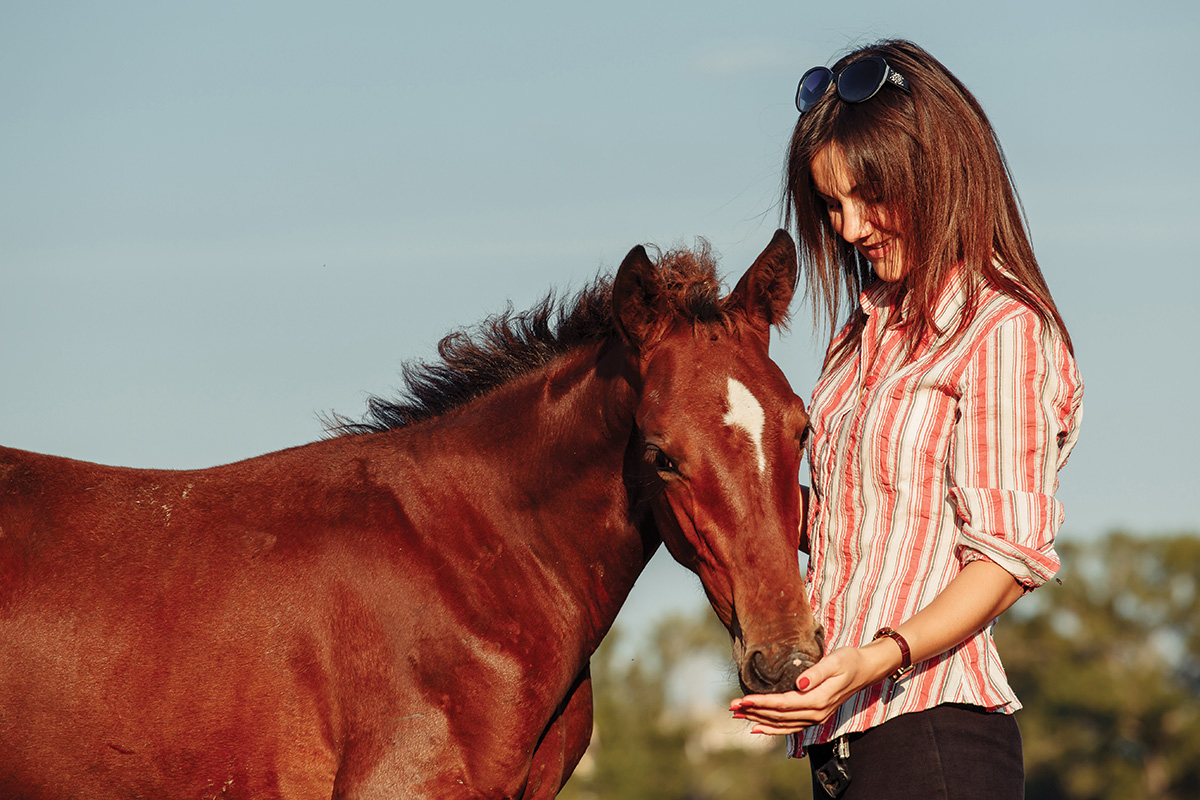 Dr. Kristina Hiney, PhD, Omega Fields® Equine Nutrition Advisor, has prepared a series of Seasonal Tips which can be of great help to the horse owner transitioning their horses from one season to another.
Dr. Kristina Hiney, PhD, Omega Fields® Equine Nutrition Advisor, has prepared a series of Seasonal Tips which can be of great help to the horse owner transitioning their horses from one season to another.
Omega Fields recognizes that your horse’s health is always of paramount importance but the many things to consider and keep in mind can make this task overwhelming. To simplify, we’ve asked Dr. Hiney to split up annual health considerations into the four seasons. The following are the things you should do during this transition to summer:
Go for a trail ride or try a new discipline with your horse. Horses get bored if they are asked to perform the same tasks over and over. Try your hand at cattle sorting or learn to jump. It will keep your horse interested in his job and give his mind a break.
Be sure to increase your horse’s access to water as the temperature heats up. He needs it. Expect his water intake to double.
Allow either ad libidum access to salt, or add salt as needed to the grain of your horse. As the horse increases his sweating rate, he will need to replace the electrolytes he has lost.
Avoid riding in the extreme heat of the day, especially if your horse is not acclimated to the climate.
Be sure to provide some sort of shade or shelter. Horses will seek relief from biting insects by standing in the shade. The bugs are less likely to follow them there.
Check the airflow in the barn if your horse is housed inside. If there is limited air movement add a fan to increase circulation and aid in evaporative cooling. However, make sure the cord is completely inaccessible to your horse!
If traveling to hotter climates, allow your horse a week to acclimate before you expect him to compete at his top level.
Avoid overgrazing pastures during droughts. This may kill the grass and ruin your investment in providing pasture as a nutrient source and not just an area for exercise. Also, weeds tend to be hardier, and your horse may begin to ingest potentially hazardous plants as the grass becomes limited.
Time to lay in your hay supply! Make sure you plan ahead for your needs for the year.
To read the other Seasonal Tips from Dr. Kris Hiney, as well as her monthly articles concerning equine health and training, sign up to receive Omega Fields’ monthly Health-E-Letter at omegafields.com. It’s free, delivered to your email address, and contains product discounts, up-to-date research, health-related news, interesting resources, and new product development, along with thought-provoking feature stories.
Further Reading
Summer Heat Poses Threat to Horses
Summer Trail Riding Tips
Summer Survival Tips for Riders





Great tips. Especially about riding in the extreme heat. We tend to forget that humans are more adapted to these extremes then horses. So, just because we can handle it doesn’t mean our horses can.